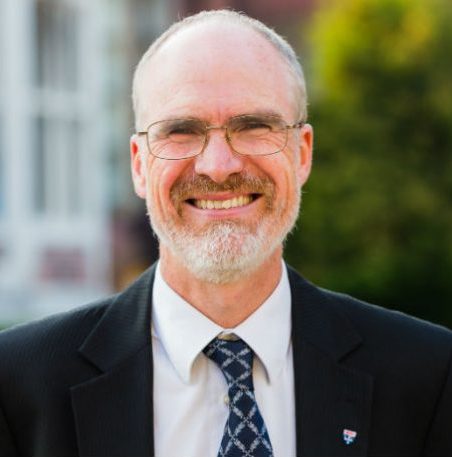I’ll be there in a minute: some brief reflections on the last 36 years
After an extensive and distinguished career in Higher Education, John Hogan, Registrar at Newcastle University and member of the AHUA Executive, reflects on the last 36 years before he retires on 31 March 2022.


In 1986, I was coming to the end of a research degree in history and had no sensible plan for what next. I dutifully reviewed the job vacancies in the Guardian on Tuesdays to see if anything more enticing than bookseller (commission only) or junior civil servant were possible. Some universities were advertising for ‘Administrative Assistants’. I had little idea what was involved and, perhaps like most students, only a vague understanding that there must be some administrative roles in a university. Some failed applications later, I finally succeeded in landing a post at Warwick University. I, therefore, fell into higher education administration. It was a happy accident. It led to an extraordinarily interesting and worthwhile career. There can be few sectors of the economy that have grown so much and so consistently.

The administrative skills that were highly valued in the 1980s included a great emphasis on committee work. I still have the occasional nightmare about split infinitives. Word processors were just coming into more general use and typing on electronic typewriters, with carbon copies, was still common place. Errors were corrected by Tipp-ex – so best to get it right first time. Although the institutions were much smaller, there were significant challenges. The steps we had to take to save money during the 1980s and 1990s seem penny pinching now but were essential then.
I was appointed as Academic Registrar at Durham University in 1993. I, therefore, benefited from working for two outstanding registrars, first Mike Shattock at Warwick and then John Hayward at Durham, both leading figures in the Conference of Registrars and Secretaries, as AHUA was previously called. These years were very formative for me. The respect for our academic work, support for students, excellent service provision, the development of coherent professional services and the maintenance of good standards of governance are core values I have sought to maintain.
I came to Newcastle as Registrar in 2002. I was appointed as part of a major change process with the amalgamation of 75 or so departments (no one was entirely sure how many there were) and 7 faculties into a series of schools and the 3 faculties – the sort of restructuring exercise with which many of us will be familiar.
The changes in higher education have been enormous. We have invested a fortune on our estates and our IT systems enabling us to work at a massive scale and rapid pace. Notwithstanding our beautiful campuses and enabling technology, it is the people who matter most. I have been fortunate indeed to work with some extraordinarily talented and dedicated colleagues across the sector and in AHUA especially.
The achievements in UK higher education in research, education and societal engagement have been remarkable but there are sector-wide changes which have been problematic. In England the move to the £9,000 fee in 2012 and, crucially, the removal of student number controls in 2015-16, are part of a marketisation of higher education with decidedly mixed results. While there was a welcome increase in funding in the early years, I worry that the pressures can be corrosive of our academic values. The concerns over student wellbeing, which may in part be related, trouble me even more. We have seen a huge increase in cases of stress, distress and mental health trauma. There needs to be greater national attention paid to the causes and the potential ways the issues can be addressed. It is good to see the recent report of the Student Futures Commission focus on this issue.
I have not welcomed the increasing complexity of the higher education environment. As I type this the Office for Students (the market regulator) has just published three consultations on the regulatory approach to student outcomes and teaching excellence. They stack up to a daunting 431 pages.
The last two years with Covid have undoubtedly been the hardest – almost unimaginably so at times. There were periods during 2020 when I was the only person in the administration building which normally holds about 500.
Of course, all work is full of frustrations and difficulties. Some problems cannot be solved, they just have to be managed as best we can. But despite this, it has been a privilege to work in the higher education sector. What we do transforms lives for the better. I will miss colleagues and the sense of purpose that higher education facilitates. I shall always be thankful for the support I have received. I was the first member of my family to go to university. I failed to leave and, as we all know, time keeps ticking especially when you are not looking.
Related Blogs



